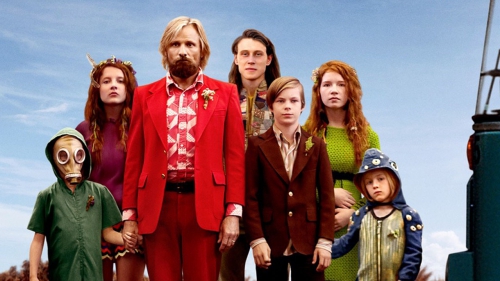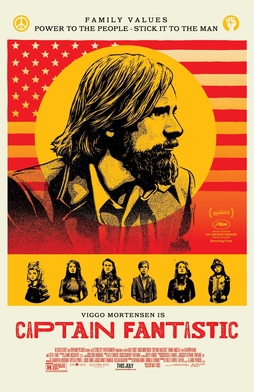dimanche, 31 mai 2020
Autonomie et Imaginaire

Autonomie et Imaginaire
par Guillaume Le Carbonel
Ex: https://rebellion-sre.fr
L’autonomie est une notion complexe à facettes multiples. L’idéologie libérale la conçoit comme la seule émancipation de l’individu. C’est alors le triomphe de la liberté individuelle avec ses droits attenants de pouvoir tout faire sans aucune limite. Projet marqueur de toujours plus d’inégalités, il va de soi que le marché roi n’est pas notre vision des choses.
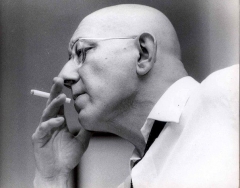 Le grand théoricien de l’autonomie radicale, Cornélius Castoriadis, définissait celle-ci comme « les hommes assemblés se donnant à eux mêmes leurs propres lois » et « sachant qu’ils le font ». En sommes, il s’agit d’une démocratie directe véritable remettant strictement en cause le principe d’hétéronomie, une autonomie à la fois individuelle et collective. Pour Castoriadis, l’autonomie est la possibilité pour la société « d’entretenir avec elle-même un rapport réflexif lui permettant de ne pas aliéner à une instance extra-sociale (le divin, les lois de la nature, ou celles de l’économie politique) sa créativité »1. L’autogestion, ou l’écomunicipalisme de Murray Bookchin s’insèrent dans cette reconquête des biens communs.
Le grand théoricien de l’autonomie radicale, Cornélius Castoriadis, définissait celle-ci comme « les hommes assemblés se donnant à eux mêmes leurs propres lois » et « sachant qu’ils le font ». En sommes, il s’agit d’une démocratie directe véritable remettant strictement en cause le principe d’hétéronomie, une autonomie à la fois individuelle et collective. Pour Castoriadis, l’autonomie est la possibilité pour la société « d’entretenir avec elle-même un rapport réflexif lui permettant de ne pas aliéner à une instance extra-sociale (le divin, les lois de la nature, ou celles de l’économie politique) sa créativité »1. L’autogestion, ou l’écomunicipalisme de Murray Bookchin s’insèrent dans cette reconquête des biens communs.
Une éducation à l’autonomie
Ce système ne peut cependant fonctionner que si les membres de la communauté ont été formés pour être citoyens agissants. Une société autonome ne peut se mettre en place sans des individus autonomes.
La réalisation d’une société autonome est donc intimement liée à la décolonisation de l’imaginaire que Serge Latouche appelle de ses vœux. C’est par le biais d’une critique de la technique, de la croissance et du développement que nous briserons les chaînes de l’aliénation marchande qui nous astreignent à une servitude très souvent volontaire. Retrouver l’autonomie n’est rien moins que se séparer de l’imaginaire du progrès et de l’économie.

Des individus autonomes rejetteront l’addiction consumériste, le transhumanisme, la destruction des cultures au nom de l’homogénéité planétaire et le cauchemar pavillonnaire, chercheront à remplacer les valeurs sur lesquelles repose la société actuelle, à relocaliser et à résister à l’emprise de la vitesse, à la cybersolitude et à l’esclavage technicien. En bref, il nous faut redécouvrir le sens de la mesure pour redécouvrir l’autonomie. Dans cette optique, tout passe nécessairement par l’échelon individuel. Rien ne se fera si nous ne changeons pas en nous mêmes. « Si nous voulons réenchanter le monde, il nous faut penser autrement nos relations avec la nature, retrouver le lien poétique qui nous relie à la Terre et au Ciel, retrouver notre juste place dans le cosmos et penser différemment ce que nous sommes » prophétise l’artiste Jean-Claude Bessette2.
L’autonomie en pratique
Une multitude d’initiatives apparaissent ici et là depuis quelques années dans un but de retisser du lien hors de la sphère marchande. Depuis le milieu des années 1980, sont apparus les systèmes d’échange locaux au niveau d’un quartier ou d’un village. Certains ont mis sur pied des écovillages, « lieu où l’on donne une chance de vivre ses passions, ses rêves positifs, là où la société ne donne jamais aucune chance aux gens de réaliser leurs rêves et espoirs »3. D’autres s’engagent sur le chemin de la permaculture, du troc de livres, de l’autoconstruction ou de la lutte contre l’obsolescence programmée en redonnant une seconde vie aux objets.

Après les AMAP, l’épicerie coopérative autogérée est une initiative très intéressante où les clients décident ensemble des achats, mettent en rayon et encaissent eux-mêmes. « L’idée était de sortir du supermarché, de ne plus approvisionner les comptes de multinationales qui détruisent la planète », rappelle l’un de ces précurseurs . A Brest, l’association « Court circuit en pays de Brest » distribue chaque semaine plus de 200 paniers bios, locaux et de saison dans 7 points différents de la ville. Les habitants de la vallée d’Aspe, près de la frontière espagnole, ont créé une banque villageoise pour relocaliser l’économie en favorisant les prêts à taux zéro, via leur association Aspe solidaire, qui collecte l’épargne des habitants et finance des activités de la vallée. A Toulouse, les membres de la Coopérative intégrale catalane « regroupe les éléments basiques d’une économie et comprend tous les secteurs d’activités nécessaires pour assurer le quotidien », hors des « règles du marché et au diktat de la rentabilité ». A Dijon, la coopérative culturelle et solidaire, la Péniche Cancale, gère un bar-concert sur l’eau où 60% des groupes programmés sont locaux. On y trouve des vins, bières et des plats issus de petites exploitations de proximité. « C’est un moyen de rassembler les gens dans un quartier composite. C’est déjà ça de gagné de sortir et de se retrouver quelque part. S’il n’y avait pas ce genre de lieu, les gens ne sortiraient pas. Il contribue à la vie du quartier », assure l’un des gérants.
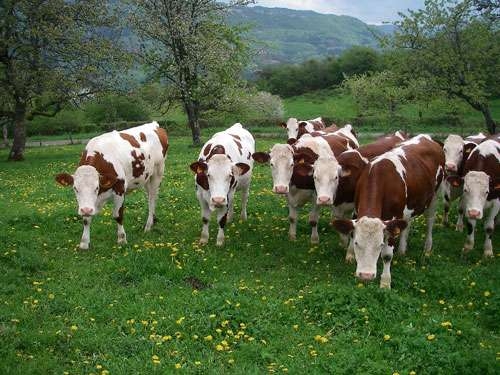
Car, et c’est primordial, l’autonomie ne signifie pas vivre en autarcie, coupé du monde. Nulle question de briser les liens mais au contraire de les resserrer, dans un but de retissage organique du local (écoles villageoises, entreprises autogérées…). Puis d’élargir le plus possible le cercle de cette révolution par contamination progressive afin de constituer un réseau dense d’alternatives à la société capitaliste. L’autonomie ne passera que par la réappropriation de l’espace public par les habitants d’un même territoire.
Guillaume Le Carbonel
1Cité par Serge Latouche, in Cornélius Castoriadis ou l’autonomie radicale, Le passager clandestin, coll. Les précurseurs de la décroissance, 2014.
2La Décroissance N°114, novembre 2014.
3www.habitation-autonome.com
Article paru dans le Rébellion 69 – Mai 2016.
12:18 Publié dans Définitions | Lien permanent | Commentaires (0) | Tags : définition, autonomie, imaginaire |  |
|  del.icio.us |
del.icio.us |  |
|  Digg |
Digg | ![]() Facebook
Facebook
jeudi, 08 juin 2017
Autonomie et Tradition

Autonomie et Tradition
par Johann Sparfell
Ex: http://www.in-limine.eu
« Il ne faut pas agir et parler comme nous l'avons appris par l'héritage de l'obéissance ». C'est ainsi qu'Héraclite introduisit sa pensée sur l'autonomie, sur l'art d'acquérir un esprit libre. Il est en effet possible et même indispensable de lier la notion d'autonomie de celle d'une éducation au travers de laquelle l'on devient soi-même, l'on s'élève. Il est bien entendu que par là nous pouvons ainsi faire référence à la nécessité d'une affirmation de l'être de l'homme et, comme d'une conséquence, de la propre personnalité de chacun en ce monde. Mais serait-ce pour autant une autorisation prêtée à l'individu d'accroître sans cesse, pense-t-il naïvement, ses prérogatives, dans une « limite » de la liberté d'autrui, afin de se soumettre toujours davantage à l'illusion de la jouissance ? Au nom d'un tel dévoiement de la notion d'autonomie, nous avons en fait appris à renier cela même qui en faisait l'élément primordial de l'existence des communautés et des hommes : la Tradition.
Mais enfin ! Qu'est-ce donc que cette « autonomie » de pacotille dont on nous serine dans nos oreilles les louanges afin de faire de nous des consommateurs « libres » de leurs choix et de leur « vie » ? Bien sûr une illusion, parce que, plutôt que d'être sans limite, elle en a au contraire beaucoup ! Ce n'est point en ce cas une affirmation de soi, mais une affirmation d'une chose extérieure à soi : d'une norme ! Oui, et c'est en cela qu'elle n'est que pure illusion ; il nous faudrait atteindre un certain état par lequel nous nous mettrions en état de suivre un mouvement que nous « participerions » à faire perdurer. « Participer » peut-être ! Mais certainement pas initier. Et encore moins innerver, c'est-à-dire en déterminer le cours, parce que ce mouvement, ce serait nous-mêmes en acte !
La liberté individualiste, que nous confondons aujourd'hui avec l'autonomie, se mêle inextricablement dans la soupe post-moderne avec l'adaptabilité, la flexibilité, la rentabilité, l'utilitarisme, l'esprit d'innovation techniciste et l'instinct de concurrence ; tout ce qui, en fait, permet au Capital, en tant que rapport social, de faire perdurer l'exploitation des ressorts humains au milieu de l'obsolescence de l'homme, et la domination de classe. Cette « liberté » est un statut, un état fixe et idéalisé, un ensemble de dispositions à atteindre au travers desquels les individus gagnent leur vie. La solvabilité en est par exemple un indice de relative réussite : elle ouvre la voie aux jouissances d'une consommation raréfiée. L' « autonomie » qui lui est liée est en ce cas un simulacre en ce sens qu'elle implique, une fois atteinte, de ne se battre que pour s'y maintenir, seul, et en regard des impératifs d'un procès que l'on ne maîtrise qu'à la mesure de nos renoncements.

Elles se situent bel et bien là les limites de ce simulacre d'autonomie : à l'horizon bouchée des impératifs d'un économisme totalisant au noms desquels nous nous transformons en entités mécaniques dont le seul but devient de ne point tomber dans le néant du déclassement sociale. Le modernisme a inventé, par l'absolutisme de l'économisme, une nouvelle forme d'hétéronomie qui a su, comme ses prédécesseurs, se voiler des apparats de l'accomplissement humain et d'une certaine forme de rédemption. Or, se « mouvoir », ou plutôt bouger, par l'incitation de cette forme d'hétéronomie ne se résume dans les faits qu'à faire du sur-place en tentant de maintenir les « misérables » acquis dus à notre soumission à l'ordre accumulatif. Lorsque nous y creusons un peu plus, nous y voyons les racines du ressentiment ; d'un ressentiment que l'on ne pourrait croire issu que de ce que l'autre a pu acquérir à notre place, mais en fait provoqué par l'horreur que nous inspire l'image de la futilité d'une quête qui n'est que course vers le néant : nihilisme ! Par lui, nous nous en voulons à nous-mêmes de ne point savoir exister, signe d'une faiblesse inexcusable et d'un manque de savoir-vivre !
Car l'autonomie, au contraire, est bien d'exister par soi-même : exister, sortir du néant, tout simplement, sans artifice, sans préjugés. L'autonomie n'est pas une fixation en un état supposé idéal malgré qu'elle implique de savoir se donner des limites, des lois, par soi-même. Elle est une dynamique, un processus jamais parfaitement accompli d'auto-détermination. Si l'hétéronomie économiste est un effort d'adaptation à un procès dans lequel il s'avère absolument nécessaire de s'intégrer pour « exister », tout en étant un rapport social de domination en sous-main, l'autonomie est une participation à un flux vital dont l'assomption invite l'être à se fonder en soi-même en tant qu'être libre de sa propre détermination : il s'agit en ce cas d'une intégration dans un tissus de relations communautaires par lesquelles l'on coopère à son propre destin et à celui de son environnement – tant humain que naturel ou artificiel.

L'hétéronomie économiste est une fixation. L'homme échappe ainsi à son devenir, sa responsabilité, en s'enfermant dans un éternel présent, qui s'avère en réalité être un piège vers une néantisation – l'éternel présent, ou le règne de l'immédiateté, est un univers carcéral où l'horizon se résume en une fuite perpétuelle vers un futur idéalisé qui n'est en réalité qu'adhésion, au sens premier du terme. Plus rien ne fait lien dans un monde où domine une dépendance totale à des impératifs quantitatifs, ni les hommes entre eux – car tous concurrents les uns des autres – ni le passé d'avec l'avenir – car l'un et l'autre sont devenus absolument contradictoires. Se donner ses propres règles, selon la définition de l'autonomie, ce n'est nullement se laisser enfermer selon une prescription commandée par une appartenance de classe ou autres dans une actualité sans fin. C'est fort au contraire dépasser l'actualité afin de donner corps à une connivence toujours possible, toujours souhaitable, entre le passé et l'avenir : participer par conséquent au recouvrement d'un lien intime entre les deux.
Plutôt que dans le temps, qui est une constante projection vers l'au-delà du réel, ce qui nous rend absolument dépendants du règne de la mesure temporelle, nous devrions nous inscrire dans la durée, qui est une possibilité perpétuellement donnée de pouvoir affirmer son être. Chaque être est en fait une durée singulière, un devenir qui s'étire de son origine à sa finalité, mais s'inscrivant toujours inévitablement dans une plus longue durée au sein de laquelle il devient un transmetteur, le dépositaire d'une traditio. La longue durée est une suite indéfinie d'événements, un processus global du devenir des civilisations, chacune d'elles imbriquée dans le devenir de l'humanité, et où demeurent les archaïsmes : « ce qui ne passe pas » et que l'on tient en réserve afin de dépasser sa propre condition initiale. Les durées singulières se lient les unes aux autres, transposent d'une génération à l'autre le socle sur lequel chacune participera à bâtir l'histoire à sa façon. Et pour ce faire, il est indispensable de pouvoir réellement exister ! Qu'est-ce à dire ? Que chaque homme, chaque communauté, doit pouvoir construire sur de bonnes bases ses propres règles, donc être autonome et ne plus dépendre de l'arbitraire des dogmes.

L'existence est une élévation, l'acte de se mettre debout et d'affirmer la singularité de son être au milieu de la pluralité contradictoire de ce, et de ceux qui nous entourent. Exister, réellement, a à voir avec l'autonomie ; c'est un acte de volition qui est la condition même de la réalisation de l'autonomie. Lorsque nous nous mettons à exister « pleinement », non de façon désobligée comme aujourd'hui – l'individualisme ne nous engage plus à rien -, nous nous en tenons à une affirmation qui repose en premier lieu et qui a toute chance de pouvoir prendre son essor à partir d'un socle commun. L'existence est un passage : celui du non-être à l'être au croisement du passé et de l'avenir, où règne l'infini et la négation, l'éternel présent – mais ne s'y attardent que les aventuriers de l'esprit, s'y perdent les autres... les insensés ! -, ce qui implique de devoir y adjoindre un sens. L'existence est une dynamique en quelque sorte, dont l'élément moteur est la Tradition : le « socle » commun. Un « élément » dont la primordialité n'a d'égale que le sens qu'Elle apporte aux hommes et à leurs œuvres, un sens partagé de génération en génération par lequel le monde se voit doté d'une signification sacrée en une « durée » où se déploie l'existence, l'indéfinité des existences influant les unes sur les autres en de multiples « écosystèmes ».
La durée dans laquelle nous nous inscrivons est une épaisseur qui est celle des interrelations par lesquelles il nous est donné de pouvoir construire nos autonomies, tant personnelles que communautaires ; en d'autres termes donc, exister, à chaque instant qu'il nous est donné de pouvoir vivre par soi-même ! A contrario du temps, linéarisé par les besoins d'une foi toute basée sur un type d'homme, que l'on peut s'imaginer telle une meurtrière à travers de laquelle l'on n'a la possibilité de n'apercevoir qu'une frange étroite de la réalité : celle d'objectif qui recule sempiternellement à chaque minute.
La quête de l'autonomie est en nous comme un besoin vital de réaliser notre vie, d'être pleinement nous-même en accord avec le monde. C'est une dynamique qui se prolonge durant « mille vies » et nous transpose à chaque point de cette durée du non-être à la grâce d'être – dynamique symbolisée par la Croix, l'un des plus vieux symbole en ce monde. Elle est le Mythe, le mythos primordial que ne vient pas de l'homme, mais qui néanmoins perdure en l'homme et le fait être tel lorsqu'il en ressent le devoir, c'est-à-dire tant qu'il a en lui ce désir de s'affirmer pour le bien commun de ceux par qui, et quoi, il existe. Elle est en fin de compte l'expression « vitale » de la Tradition Elle-même, son souffle sacré par lequel les mondes se constituent et se succèdent, prennent sens et épaisseur.

Mais qu'est-ce donc qu'être autonome sinon être soi-même, devenir soi-même, simplement, parmi les autres ? Être un esprit libre comme ont su le dire Héraclite, Montaigne ou Nietzsche, un « barbare » - un être « simple » - en chemin vers la maîtrise de son existence qui se réfère en toute humilité aux leçons et expériences accumulées par les générations qui l'ont précédées. C'est un accomplissement qui se réalise au nom d'une notion de Bien Commun, d'une notion secrètement portée par la Tradition et qui ne peut dépendre que d'un minimum de préjugés sur l'homme et la nature a contrario du respect de la parole donnée. Comme le disait S. Weill, la vérité est enfouie dans le silence des humbles ; la Tradition y a toujours trouvé son ultime refuge. La Tradition est un appel intemporel pour l'homme à s'extraire et s'élever par lui-même, de par ses propres forces, au-delà du magma informe de l' « indifférencié civilisateur » - j'entends par là la tendance historique à la standardisation massificatrice du processus civilisateur dont le marxisme orthodoxe et le néo-libéralisme, qui sont si proches l'un de l'autre dans les faits, en sont les portes-voix modernes -, donc des préjugés et des « héritages de l'obéissance ». Elle est une Connaissance qui engage à l'empathie, donc à l'autonomie.
Que pourrions-nous en conclure en somme ? Que la Tradition, loin d'être une sommation à l'inertie et l'impuissance, est fort au contraire une invitation au développement indéfini de nouvelles manière de « voir » le monde et de le faire nôtre, consciemment. Elle n'est pas une vérité imposée d'une « hauteur » inatteignable mais l'invitation à la recherche constante de la vérité. La Tradition est ce qui ne passe pas, telle une clef intemporelle qui est à même de nous élever à la com-préhension, à la lucidité « raisonnable », de ce qui agit dans le monde au travers de nos êtres et constitue celui-ci à chaque instant, à chaque époque singulière. Loin de pouvoir être interprétée Elle-même telle un carcan ou une « vérité » irréfutable sur l'homme, Elle constitue ce qui au contraire peut nous apporter en tout temps la conscience du devoir de construire nos autonomies, celle de la personne comme celle de ses communautés, afin de toujours pouvoir faire surgir, in limine, la nécessité de concevoir un sens commun au milieu de ce qui n'est, en vérité, que chaos, mais chaos riche d'une multitude de possibilités de créations, mais aussi de destructions. Elle est en somme, la richesse des possibles contenue dans l'existence et qu'il nous appartient de mettre à jour à chaque instant de l'histoire, en faisant l'histoire : en composant de nouvelles harmonies, en donnant du sens à nos vies. Elle est un socle bâti par la multitude d'expériences accumulées par l'homme sur lui-même et son devenir...

La Tradition accompagne donc la marche de l'histoire, en lui donnant l'ouverture indispensable vers l'ensemble des possibles et des révolutions ; Elle ne saurait par conséquent représenter pour l'humanité éveillée un système clos sur lui-même, une injonction théorique idéalisée dans un système religieux, « politique » ou philosophique : « La transformation de l'activité théorique en système théorique qui se veut fermé c'est le retour vers le sens le plus profond de la culture dominante. C'est l'aliénation à ce qui est déjà là, déjà créé ; c'est la négation du contenu le plus profond du projet révolutionnaire, l'élimination de l'activité réelle des hommes comme source dernière de toute signification, l'oubli de la révolution comme bouleversement radical, de l'autonomie comme principe suprême ; c'est la prétention du théoricien de prendre sur ses propres épaules la solution des problèmes de l'humanité. Une théorie achevé prétend apporter des réponses à ce qui ne peut être résolu, s'il peut l'être, que par la praxis historique. Elle ne peut donc fermer son système qu'en pré-asservissant les hommes à ses schémas, en les soumettant à ses catégories, en ignorant la création historique, lors même qu'elle la glorifie en paroles. Ce qui se passe dans l'histoire, elle ne peut l'accueillir que s'il se présente comme sa confirmation, autrement elle le combat – ce qui est la façon la plus claire d'exprimer l'intention d'arrêter l'histoire. »1
Yohann Sparfell
Note:
1Cornélius Castoriadis in L'institution imaginaire de la société, éd. Du Seuil, 1975, p. 101
09:55 Publié dans Définitions, Philosophie, Traditions | Lien permanent | Commentaires (0) | Tags : philosophie, tradition, autonomie, définition |  |
|  del.icio.us |
del.icio.us |  |
|  Digg |
Digg | ![]() Facebook
Facebook
samedi, 05 novembre 2016
Piero San Giorgio - Captain Fantastic
00:05 Publié dans Cinéma, Film | Lien permanent | Commentaires (0) | Tags : piero san giorgio, captain fantastic, film, cinéma, autonomie, viggo mortensen, survivalism |  |
|  del.icio.us |
del.icio.us |  |
|  Digg |
Digg | ![]() Facebook
Facebook
lundi, 24 mars 2014
Ethnic & Racial Relations: Ethnic States, Separatism, & Mixing
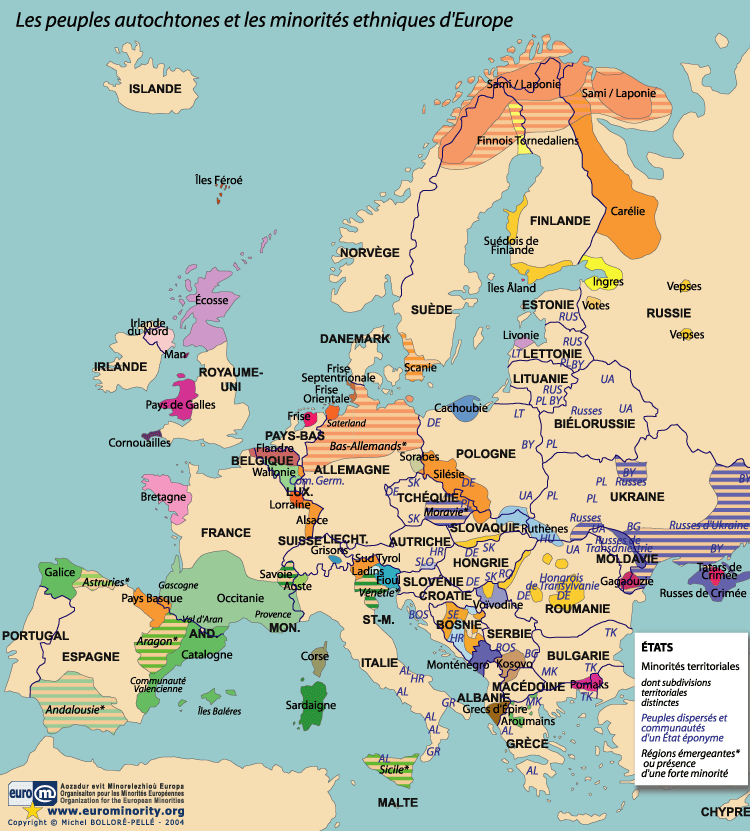
Ethnic & Racial Relations:
Ethnic States, Separatism, & Mixing
By Lucian Tudor
Ex: http://www.counter-currents.com
In our previous essay, “Race, Identity, Community [2],”[1] we discussed a number of subjects: most importantly, the varying levels and relations of ethnic and cultural groups, the matter of cultural communication, openness, and closure, the relationship between race and culture, the necessity of resisting miscegenation for the sake of ethno-cultural stability, the error of individualism and the value of social holism, and the importance of the sense of community to ethnic and racial identity.
In the present essay, we will not reiterate the major points which we made before, except those which are relevant to the matters discussed. The purpose of this essay is to serve as an extension of the previous one and to expand upon certain points which were not made sufficiently clear or covered properly, and it thus must be read in the context of the preceding essay. Here we aim to discuss the topic of social, cultural, and political relations between ethnic and racial groups, the problem and varieties of social and biological mixing, and the practices and forms of ethnic and racial separatism.
Identity and Interaction
Particularities and particular identities define human beings; contrary to egalitarian and universalist ideology, one cannot be truly human without a belonging to particular groups, including religious, political, cultural, and racial groups. Of course, belonging to a group and possessing a conscious identification with this belonging are two different things (just as we can say that there is a conscious and unconscious aspect to identity). History and observation show that ethnic, cultural, and racial identities come into being and are awakened by awareness of and interaction with other ethnic and racial groups. As Alain de Benoist wrote: “The group and the individual both need to be confronted by ‘significant others.’ Therefore, it is nonsense to believe that identity would be better preserved without this confrontation; actually, it is the opposite: confrontation makes identity possible. Other subjects make a subject become subject.” [2]
Thus, interaction with other types of human beings is an essential part of human existence, since they draw their very awareness of being who they are by this interaction. Furthermore, as we have already mentioned in our previous work (“Race, Identity, Community”), the various cultures (in terms of both smaller and larger groups) develop and are enriched not only by internal development, but also by interaction with and the exchange of products and ideas with other cultures or peoples. It is for these reasons that it is justified to assert that “the originality and the richness of the human heritages of this world are nourished by their differences and their deviations . . .” [3] as Pierre Krebs stated, similarly to many other New Right authors.
Of course, recognizing the value of diversity and differences, and appreciating these differences in other peoples and learning from them, does not mean that all peoples of the world can or should be appreciated equally. It is, of course, perfectly natural that one people will find certain foreign peoples to be unattractive in some cases, and will distance themselves from them. This is why, although diversity is valuable, the present egalitarian and multiculturalist propaganda that all cultures and ethnic groups must be appreciated and accepted equally, is simply wrong and absurd. No healthy people show equal liking for all others, although it is possible to respect all foreign peoples even if one does not treasure them all. It is, for example, completely natural that a European may be repulsed by the culture of an African tribe but simultaneously feel admiration for East Asian culture, while still according to each people a certain level of respect.
It is also a fact of life that without barriers, without a certain level of separation from other peoples, and without a specific territory on which to live as a distinct and relatively homogeneous people, an ethnic or a racial group would disappear through mixture or assimilation into other groups. The extreme modern liberal-globalist propaganda advocating complete openness and mixing between cultures and peoples, using as its justification historical examples of cultural exchanges, is fallacious because normal cultural dialogue and interaction never involved complete openness but always a limited form of interaction.
Total openness and mixing eliminates identities because peoples do not merely change through such processes, but lose who they are or merge with another people entirely. To quote Benoist, “it is the diversity of the human race which creates its richness, just as it is diversity which makes communication possible and gives it value. Diversity of peoples and cultures exist, however, only because, in the past, these various peoples and cultures were relatively isolated from one another.”[4] Culture transforms over time due to internal creativity and development as well as through communication with other cultures, but contact with other cultures must always be limited and imperfect, otherwise the very integrity of a culture is undermined. Therefore, “Identity is not what never changes, but, on the contrary, it is what allows one to constantly change without giving up who one is.”[5]
The Problem of Mixing
It needs to be recognized that mixing, both the social form (so-called “integration”) as well as the biological form (miscegenation), is a complicated human problem. Mixing has occurred all throughout history in a variety of forms and circumstances, as a result of different forms of close interaction between different ethnic and racial groups. The questions of why mixtures occur and whether this is a normal and acceptable phenomenon therefore naturally present themselves, and they must be answered with the proper level of sophistication in order for us to defeat our opponents.
First, it needs to be recognized that mixture between two different peoples belonging to the same race is a distinct matter from mixture between two different races, and involves different principles and circumstances. Ethnicities belonging to the same racial type share the same biological and spiritual background, which serves as a larger foundation for identity which connects them. In cases where two or more ethnic groups of the same racial type no longer live separately and choose to mix socially (from which intermarriage inevitably follows), it is oftentimes because these groups – within a particular time and conditions – have become closely connected culturally and spiritually or because they no longer feel their distinctions to be significant.
This phenomenon cannot be regarded as abnormal and wrong any more than when two racially related ethnic groups choose to separate instead of mix, because both occurrences are rather frequent in history and do not normally have negative effects to identity (even if identity undergoes some change in this). For example, many European ethnic groups (the English, the French, the Balkan peoples, etc.) are the result of an inter-European mixture that occurred centuries ago, although they also have a right to separate. Thus, within a race, separation and mixing can both be regarded as normal phenomena, depending on the circumstances and the nature of the ethnic groups in question.
On the other hand, between different races, mixing can be argued to be an abnormal phenomenon because the relations and effects are different; the state of normality is to desire racial separation. Contrary to the assertions of many egalitarian multiculturalist (“multiculturalism” here signifying the belief and practice of ethnic mixing) propagandists, racial identity and the concept of race is not a modern phenomenon, for, as Benoist pointed out, “the idea of race is almost as old as humanity itself.”[6] So it is clear that recognizing the importance of race and practicing racial separatism does in fact have a historical and even a universal basis; human beings were never in a condition where they completely lacked racial feelings and mixed freely.
The reasons for racial mixing (social and, following that, biological) throughout history are complex and differ based on the circumstances in question. In some cases, it was due to a powerful, militant people conquering another people and forcefully reproducing with the women of the conquered in order to secure their conquest through breeding. In other cases, as some authors have argued, it is due to the decadence of a people who have lost certain spiritual qualities, their sense of differentiation, and their racial identity, and have as a result chosen to mix with other peoples, even those racially different (these other peoples may be immigrants or conquered peoples who formerly lived separated). Of course, where mixing occurs willingly, both sides have surrendered their unique identity.[7] There may be other causes, and in a sense racial miscegenation is inevitable because it is always bound to occur at certain times and places where different races come into contact (even if only to a small extent).
However, it is always important to recognize and reassert that despite its occurrence throughout history, for whatever reasons or causes, race-mixing is not a rule. It is actually rather abnormal, and that it occurs all throughout history does not invalidate this fact. Because the identity, basic anthropological and psychological features, and character of ethnic groups and cultures are influenced by racial type, and because of the spiritual and sociological dimension of race, race-mixing means a deep and profound change completely transforming a family or, when it occurs on a larger scale, a people. This idea cannot be associated with biological reductionism, which we must reject as fallacious; even though culture, society, and cultural identity cannot be reduced to race, and race is only one factor among many which affects them, racial background is still undoubtedly an important factor.
Thus, since preserving their racial type means maintaining who they are, their identity as a folk, peoples are thus historically compelled to resist race-mixing and to separate from other races. It is not only for the sake of their survival that they are so compelled, but also because of the primal impulse to live with their own people in their communities. As Krebs pointed out, “modern ethology clearly established the innate tendency of man to identify with individuals who resemble him . . .”[8] There is, furthermore, also the fact that, as Evola pointed out, “blood and ethnic purity are factors that are valued in traditional civilizations too,” which means that the maintaining physical racial type is a practice which holds a meta-historical value.[9]
We should note that, of course, a people which goes through minor amounts of race-mixing does not lose its identity or its belonging to its original racial type. For example, the Eastern Slavic peoples and Southern Europeans peoples who have endured some level of miscegenation historically still belong to the White-European race, both in terms of their general anthropological-physical type as well as their racial and ethnic identity. Race is defined not by a strict purity, but by the possession of a general physical form (the general anthropological features associated with a race), the general spiritual form associated with it, and the cultural style and identity which is sociologically linked with race.[10]
It also needs to be mentioned here that resisting race-mixing is not necessarily a “racist” phenomenon (which means racial supremacism), because placing value on racial differences and practicing racial separatism can and has taken on non-racist forms. It is clear that it is extremely naïve and erroneous to associate all forms of racial separatism with racism and inter-racial hostility.[11] As Guillaume Faye once wrote:
In effect, just as it is normal and legitimate for the Arab, the Black African, the Japanese to desire to remain themselves, to recognize that an African is necessarily a black man or an Asian a yellow man, it is legitimate, natural and necessary to recognize the right of the European to reject multiracialism and to affirm himself as white man. To link this position with racism is an inadmissible bluster. The real racists are, on the contrary, those who organize in Europe the establishment of a multiracial society.[12]
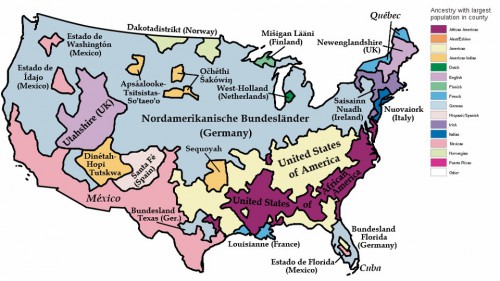
Practices of Separatism
Evidently, racial and ethnic separatism has taken on a variety of forms throughout history. One commonly recognized form is the creation of a class or caste system, separating people into different castes based on their racial background (or, in a typical analogous system, based on ethnic or cultural background). The class structure of racial separation, which is usually the result of conquest, can be seen in numerous cases throughout history, including in Classical civilization, in certain ancient Near Eastern civilizations, in India, and in many parts of Central and South America after European colonization. The most negative feature of this practice is obviously that it involved “racism” and subjugation, although it also had the positive effect of preserving the racial types which have formed, even after miscegenation (the new, mixed racial types; mulattoes and mestizos), due to the fact that it discouraged race-mixing by class separation.[13]
Another form of separatism is what is commonly recognized as ethnic “nationalism,” which has its primary basis in ethno-cultural identity, although it is oftentimes accompanied by racial identity where inter-racial contact exists. Nationalism is defined, in the most simple terms, as the belief that ethnic groups or nationalities (in the cultural sense) are the key category of human beings and that they should live under their own independent states. It implies complete and total separation of ethnic groups into separate nations. Nationalism is oftentimes associated with ethnic chauvinism, inter-ethnic hostility, imperialism, and irredentism, although it is important to remember that there have been certain select forms of nationalism throughout history that were not at all chauvinistic and imperialistic, so it is erroneous to assume that it always takes on these negative features.
However, “nationalism” is a problematic term because it has been defined in different and sometimes contradictory ways. In one, very generic sense, nationalism means simply the desire of a people to live separately from others, under its own state and by rule of leaders of its own ethnic background; in essence, a basic ethnic separatism and desire for independence. In this sense, nationalism is a very ancient idea and practice, since all across history one can find cases where a people of one particular ethnic background desired to be independent from the rule of another different people and fought for this independence. This is not, however, the way nationalism is always defined, and aside from the fact that it is sometimes defined as being necessarily chauvinistic, it is also often defined in a certain manner that makes it particularly an early modern phenomenon.
Many New Right as well as Traditionalist authors have defined nationalism as a form of state in which the “nation” is politically or culturally absolutised, at the expense of smaller local or regional cultural differences, and regarding other nations as completely foreign and of lesser value. This form of “nationalism” is exemplified by the Jacobin nation-state and form of sovereignty (since the French Revolution was a key force in initiating the rise of this state form), and is identified by the elimination of sub-ethnic differences within its borders and the regard for differences with other peoples or nationalities as absolute. Naturally, this form of nationalism has the consequence of creating hostility and conflict between nations because of these ideological and political features.[14]
From the “Radical Traditionalist” perspective, exemplified by Evola’s thought, nationalism is an anomaly, a deviation from valid state forms. It is regarded as negative, firstly, because this form of traditionalism considers ethnicity and nationality as secondary qualities in human beings; although they have some level of importance, they are not valid as primary features around which to organize states and leadership, which should be based solely upon the values of elitism, aristocracy, and spiritual authority. Nationalism also contradicts the practice of the Empire – the imperial state, which is not necessarily imperialistic – since nationalism means the absolutisation of the “nation,” whereas the traditional empire is organized as a supra-national federalistic union with a central spiritual authority.[15] According to Evola,
The scheme of an empire in a true and organic sense (which must clearly be distinguished from every imperialism, a phenomenon that should be regarded as a deplorable extension of nationalism) . . . safeguarded the principles of both unity and multiplicity. In this world, individual States have the character of partial organic units, gravitating around . . . a principle of unity, authority, and sovereignty of a different nature from that which is proper to each particular State . . . due to its super-ordained nature, would be such as to leave wide room for nationalities according to their natural and historical individuality.[16]
In the imperial state, which Evola asserts is the true traditional model of the state, ethnic or national groups are thus separated federally; different peoples live under the same state and serve the same ultimate monarchical authority, but they live in separate parts of the kingdom or empire. To quote one his key works: “the Middle Ages [and also certain ancient civilizations] knew nationalities but not nationalisms. Nationality is a natural factor that encompasses a certain group of common elementary characteristics that are retained both in the hierarchical differentiation and in the hierarchical participation, which they do not oppose.”[17]
Identitarian Separatism
The European New Right and the Identitarian Movement, the latter being closely related to and derived from the New Right,[18] also advocates the practice of federalism, although their thinkers have some disagreements with the claims of “Radical Traditionalists” concerning certain essential principles. The “New Rightist” concept of federalism involves the vision of a federation (or better, confederation, which more clearly expresses this decentralized type of federalism) which is based upon the principles of subsidiarity, of granting autonomy to its regions, and of local and regional political structures holding the power that is due to them, while the central authority rules primarily when decisions affecting the whole state must be made. This form of state and sovereignty “implies plurality, autonomy, and the interlacing of levels of power and authority.”[19] Subsidiarity and allowing decisions to be made at lower levels are also features of the Radical Traditionalist concept of the federalist state, but in contrast they assert the importance of the ultimate authority of the sovereign (the central ruler) far more.
Aside from supporting a partly different conception of sovereignty and authority from Radical Traditionalists, Identitarians and New Rightists also support the practice of a participatory and organic form of democracy as the ideal state form (which, it must be noted, is still compatible with respect for authority and hierarchy). This idea does indeed have a historical basis, for, as Benoist pointed out, “governments with democratic tendencies have appeared throughout history . . . . Whether in Rome, in the Iliad, in Vedic India or among the Hittites, already at a very early date we find the existence of popular assemblies for both military and civil organisation. Moreover, in Indo-European society the King was generally elected . . .”[20]
Furthermore, New Rightists and Identitarians strongly assert the value of ethnic, cultural, and racial differences and identities, and therefore, according to this conception, organic democracy coincides with the recognition of and respect for ethnic differences.[21] Because organic democracy, meaning true democracy, is based off of respect for ethnic differences, Benoist rightly asserts that:
Democracy means the power of the people, which is to say the power of an organic community that has historically developed in the context of one or more given political structures – for instance a city, nation, or empire . . . Every political system which requires the disintegration or levelling of peoples in order to operate – or the erosion of individuals’ awareness of belonging to an organic folk community – is to be regarded as undemocratic.[22]
The New Right advocates the idea of respecting the identities of smaller, local, and regional ethnic or sub-ethnic groups as well as recognizing the importance of larger ethnic and cultural relations and unities. Thus, for example, to be a Breton, a Frenchman, and a White European[23] all have importance, and each level of identity and belonging has value in a hierarchical relationship. Ethno-cultural groups of all levels and types have the right to live with freedom and separately from others in different states and territories. The New Right acknowledges that there are cases where complete state separation for a people is appropriate (akin to the simpler, generic idea of “nationalism”), but there are also cases where the federalist state system in which each people has its own autonomous region in which to live is more practical or desirable.[24]
Arguably, the New Right or Identitarian vision is not only the most desirable, but also the most realistic in the modern world because it offers the most balanced solution to the current problems and ethnic-racial chaos. In a world where democratic feelings have become permanent among most peoples it offers an organic participatory democracy to replace the corrupt liberal democracies presently dominant. Where there are countries composed of multiple ethnicities which are not in a position to divide themselves entirely (complete nationalism) it offers the idea of a federation of autonomous regions. Finally, in a world where ethnic and racial groups are threatened to be disintegrated by “multiculturalist integration” and mixing it offers a peaceful and fair solution of territorial separation, the creation of unmixed ethnic communities, and cooperation between the different races and peoples of the world to achieve this vision.
Notes
[1] Lucian Tudor, “Race, Identity, Community,” 6 August 2013, Counter-Currents Publishing, http://www.counter-currents.com/2013/08/race-identity-community [3].
[2] Alain de Benoist, “On Identity,” Telos, Vol. 2004, No. 128 (Summer 2004), p. 39.
[3] Pierre Krebs, Fighting for the Essence (London: Arktos, 2012), p. 89.
[4] Alain de Benoist, “What is Racism?” Telos, Vol. 1999, No. 114 (Winter 1999), p. 46-47. This work is available online here: http://www.alaindebenoist.com/pdf/what_is_racism.pdf [4]
[5] Benoist, “On Identity,” p. 41.
[6] Alain de Benoist, “What is Racism?” p. 36. It is worth mentioning here that there are certain mainstream historians who have admitted and studied the history of racial feelings since ancient times (in Western and Middle Eastern civilizations, specifically). Among their works include Benjamin Isaac, The Invention of Racism in Classical Antiquity (Princeton: Princeton University Press, 2004) and Miriam Eliav-Feldon, Benjamin Isaac, & Joseph Ziegler, eds., The Origins of Racism in the West (Cambridge: Cambridge University Press, 2009). Despite the egalitarian bias and hostility to racialism these authors may reveal in their works, these still have research value for us because of the historical facts they provide.
[7] See for example the chapters “Life and Death of Civilizations” and “The Decline of Superior Races” in Julius Evola, Revolt Against the Modern World (Rochester: Inner Traditions, 1995) and Krebs, Fighting for the Essence, pp. 23 ff. & 79 ff.
[8] Ibid., p. 25.
[9] Evola, Revolt Against the Modern World, p. 57. On this matter, see also the chapter “The Beauty and the Beast: Race and Racism in Europe” in Tomislav Sunic, Postmortem Report: Cultural Examinations from Postmodernity (Shamley Green, UK: The Paligenesis Project, 2010).
[10] A number of Right-wing authors have already written much more on this matter. For the White Nationalist perspective in particular, see especially Ted Sallis, “Racial Purity, Ethnic Genetic Interests, & the Cobb Case,” 18 November 2013, Counter-Currents Publishing, http://www.counter-currents.com/2013/11/racial-purity-ethnic-genetic-interests-the-cobb-case [5]. For the New Right perspective, see for example: the entries “Miscegenation” and “Race, Racism, Anti-Racism” in Guillaume Faye, Why We Fight: Manifesto of the European Resistance (London: Arktos, 2011), pp. 194 ff. & 227 ff.; Benoist’s commentaries in his “What is Racism?”; Tomislav Sunic, “Ethnic Identity versus White Identity: Differences between the U.S. and Europe,” The Occidental Quarterly, Vol.12, No.4 (Winter 2012/13), available online here: http://www.tomsunic.com/?p=444 [6].; The articles in Sebastian J. Lorenz, ed., Elementos: Revista de Metapolítica para una Civilización Europea, No. 47, “Elogio de la Diferencia, Diferencialism versus Racismo,” (28 May 2013), http://urkultur-imperium-europa.blogspot.com/2013/05/elementos-n-47-elogio-de-la-diferencia.html [7]
[11] See the citations of Faye, Benoist, Sunic, and Lorenz in the previous note (# 10).
[12] Guillaume Faye, “La Sociedad Multirracial,” 13 Jul y 2007, Guillaume Faye Archive, http://guillaumefayearchive.wordpress.com/2007/07/13/la-sociedad-multirracial [8]. Note that this article was republished in print in Escritos por Europa (Barcelona: Titania, 2008).
[13] On the matter of historical examples, see our previous citations of Isaac’s The Invention of Racism in Classical Antiquity and The Origins of Racism in the West. Dealing with the racial basis for the Indian caste system, see for example the preface to Arvind Sharma, Classical Hindu Thought: An Introduction (Oxford: Oxford University Press, 2000), and Alain Daniélou, India: A Civilization of Differences: The Ancient Tradition of Universal Tolerance (Rochester: Inner Traditions, 2003), the latter arguing that the caste system is not truly “racist” but a natural racial ordering. On the race-based case/class systems in Central and South America, one classic mainstream resource is Magnus Mörner, Race Mixture in the History of Latin America (Boston: Little, Brown, 1967). There are, of course, numerous other academic resources on this subject matter.
[14] See Alain de Benoist, “Nationalism: Phenomenology & Critique,” 16 May 2012, Counter-Currents Publishing, http://www.counter-currents.com/2012/05/nationalism-phenomenology-and-critique [9]; Michael O’Meara, New Culture, New Right: Anti-Liberalism in Postmodern Europe, 2nd edition (London: Arktos, 2013), pp. 228 ff.; Edgar Julius Jung, “People, Race, Reich,” in Europa: German Conservative Foreign Policy 1870–1940, ed. & trans. by Alexander Jacob (Lanham, MD, USA: University Press of America, 2002); the overview of Evola’s position in the chapter “Nations, Nationalism, Empire and Europe” in Paul Furlong, Social and Political Thought of Julius Evola (Abingdon & New York: Routledge, 2011).
[15] See Alain de Benoist, “The Idea of Empire,” Telos, Vol. 1993, No. 98-99 (December 1993), pp. 81-98, available online here: http://www.gornahoor.net/library/IdeaOfEmpire.pdf [10].
[16] Julius Evola, Men Among the Ruins: Postwar Reflections of a Radical Traditionalist (Rochester: Inner Traditions, 2002), p. 277.
[17] Evola, Revolt Against the Modern World, pp. 338-39.
[18] Identitarianism is founded upon the ideas of New Right intellectuals such Alain de Benoist, Guillaume Faye, Tomislav Sunic, Pierre Krebs, Dominique Venner, and Pierre Vial, who themselves are sometimes designated as “Identitarian.” However, we should also note that some of the basic ideas of the Identitarian Movement can be found in We Are Generation Identity (London: Arktos, 2013), although by itself this brief manifesto may be insufficient.
[19] Alain de Benoist, “What is Sovereignty?” Telos, vol. 1999, no. 116 (Summer 1999), p. 114. This work is available online here: http://www.alaindebenoist.com/pdf/what_is_sovereignty.pdf [11] . See also Benoist, “The First Federalist: Johannes Althusius,” Telos, vol. 200, no. 118 (Winter 2000), pp. 25-58, and the articles in Sebastian J. Lorenz, ed., Elementos: Revista de Metapolítica para una Civilización Europea, No. 37, “Federalismo Poliárquico Neoalthusiano,” (28 November 2012), http://urkultur-imperium-europa.blogspot.com/2012/11/elementos-n-37-federalismo-poliarquico.html [12].
[20] Alain de Benoist, The Problem of Democracy (London: Arktos Media, 2011), pp. 14-15. We should note that this book is one of the most essential resources on the matter of democracy, for the idea of an organic and ethnic-based participatory democracy and for defending the idea of democracy as a political system.
[21] See Chapter I. “The Ancients and the Moderns” in Ibid.
[22] Benoist, Problem of Democracy, p. 103.
[23] When we refer to the broader, more encompassing cultural identity of Europeans, it is better to refer to a general “European” culture rather than to “Indo-European” culture because not all White European peoples are entirely Indo-European, and there clearly are and have been non-Indo-European peoples in Europe who are of the same racial and general cultural type as Indo-European peoples (well-known modern examples including the Finns, Hungarians, Estonians, Livonians, and Basques, although there were also numerous white pre-Indo-European peoples in ancient times who had disappeared through mixture with Indo-Europeans).
[24] Along with our previous citations of Benoist’s essays on sovereignty, empire, and federalism, see also Faye’s entries “Empire, Imperial Federation” and “Democracy, Democratism, Organic Democracy” in Why We Fight, pp. 130-32 and 111-14.
Article printed from Counter-Currents Publishing: http://www.counter-currents.com
URL to article: http://www.counter-currents.com/2014/03/ethnic-and-racial-relations/
URLs in this post:
[1] Image: http://www.counter-currents.com/wp-content/uploads/2014/03/handshake.jpg
[2] Race, Identity, Community: http://www.counter-currents.com/2013/08/race-identity-community/
[3] http://www.counter-currents.com/2013/08/race-identity-community: http://www.counter-currents.com/2013/08/race-identity-community
[4] http://www.alaindebenoist.com/pdf/what_is_racism.pdf: http://www.alaindebenoist.com/pdf/what_is_racism.pdf
[5] http://www.counter-currents.com/2013/11/racial-purity-ethnic-genetic-interests-the-cobb-case: http://www.counter-currents.com/2013/11/racial-purity-ethnic-genetic-interests-the-cobb-case
[6] http://www.tomsunic.com/?p=444: http://www.tomsunic.com/?p=444
[7] http://urkultur-imperium-europa.blogspot.com/2013/05/elementos-n-47-elogio-de-la-diferencia.html: http://urkultur-imperium-europa.blogspot.com/2013/05/elementos-n-47-elogio-de-la-diferencia.html
[8] http://guillaumefayearchive.wordpress.com/2007/07/13/la-sociedad-multirracial: http://guillaumefayearchive.wordpress.com/2007/07/13/la-sociedad-multirracial
[9] http://www.counter-currents.com/2012/05/nationalism-phenomenology-and-critique: http://www.counter-currents.com/2012/05/nationalism-phenomenology-and-critique
[10] http://www.gornahoor.net/library/IdeaOfEmpire.pdf: http://www.gornahoor.net/library/IdeaOfEmpire.pdf
[11] http://www.alaindebenoist.com/pdf/what_is_sovereignty.pdf: http://www.alaindebenoist.com/pdf/what_is_sovereignty.pdf
[12] http://urkultur-imperium-europa.blogspot.com/2012/11/elementos-n-37-federalismo-poliarquico.html: http://urkultur-imperium-europa.blogspot.com/2012/11/elementos-n-37-federalismo-poliarquico.html
00:05 | Lien permanent | Commentaires (2) | Tags : ethnisme, ethnicité, ethnies, séparatisme, autonomie, théorie politique, politologie, sciences politiques |  |
|  del.icio.us |
del.icio.us |  |
|  Digg |
Digg | ![]() Facebook
Facebook
dimanche, 23 mars 2014
Crimea’s Reunification with Russia and National Self-Determination Trends in Europe
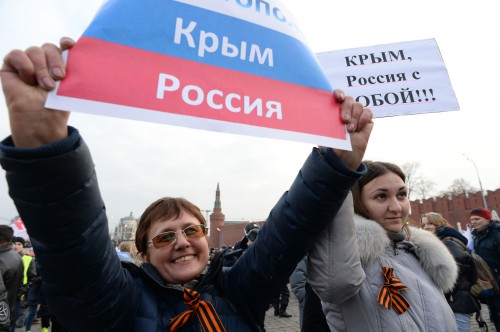
Crimea’s Reunification with Russia and National Self-Determination Trends in Europe, Time for Peoples to Decide Their Own Fates
|
Ex: http://www.strategic-culture.org |
|
The Crimea’s return to Russia is a hot issue, but it’s not something absolutely extraordinary for Europe. Pretty soon the international community’s attention will switch over to other important and unexpected events related to the desire of peoples to implement their right to self-determination.
As European history shows, the national states normally appear as a result of big wars: Germany and Italy were unified in the 70s of XIX century and new states emerged in the Balkans. As WWI and WWII ended, Europe has been facing vibrant events leading to the creation of new states and reshaping of borders. I thought that the period of 1989 -1992 was the time of the fourth wave of European map reshaping as the Cold War was over and a number of former socialist states dismembered. 23 states have appeared, or 24 entities if Kosovo is counted, in the place of Czechoslovakia, the Soviet Union and Yugoslavia as of 1989. The whole Slav world actually has gone through a transition period leading to the emergence of national states. The number is 13 now, but the figure is believed to bring bad luck, something that makes experts believe one more addition to the count – a state of Carpathian Rusyns - would just hit the spot as this is the only Slav nation still destitute of statehood and national identification. A group of Western states led by the United States and other NATO members actually inspired the fourth wave using the energy of nationalism to weaken a geopolitical adversary. But once started, a chain reaction is hard to stop. It has not been extinguished during all these twenty years but was rather shouldering waiting for the time to come. Back in history, a national partition used to happen after two-three generations, nowadays one generation is enough. Now the fifth wave of national identification is striking Europe and it is not necessarily linked to wars. Some peoples, especially in the West, continue to face the trends to partition, while others are in the process of unification, like in the case of Russia, for instance. Crimea is a more a left-over from the 1990s, and the main events are expected to take place soon not in the post-Soviet space, but rather in the «united» Europe. The Crimean referendum may influence the situation to some extent, but, in essence, it’ll be a backlash to the process launched by the West. These are the whims of Nemesis, the goddess of revenge. First of all, new tensions are getting high where national problems are still waiting for final solutions, or in the states of the Western Europe, and it is a heavy burden to be shouldered by Brussels. The risk of the use of force is high. Croats in Bosnia and Herzegovina have been dreaming about a national entity - the Croatian Republic of Herzeg-Bosnia - or joining Croatia since the days of the war. Serbs still cherish plans for the Republic of Srpska to become independent or become part of Serbia. Bosnian Muslims have been staging social protests for a few months, it’s not about economy only, they also raise the issue of national identity. The regional Muslim movement for autonomy in the Sanjak situated between Montenegro and Serbia would like to unite with the people of the same religion living in the north to make Greater Bosnia emerge. Serbs in In Kosovo-Mitrovica are especially elated by the Crimea events. They intend to intensify the pressure on Belgrade to make it insist they stay out of Pristina control. The Albanians in western Macedonia proclaimed the foundation of the Republic of Illirida in 1990, now they want the status of federal entity. In Bulgaria the trend to claim the larger part of eastern Macedonia is on the rise. Bulgarians believe the land rightfully belongs to them. Romania sets its eyes on Moldavia. Inside Romania the Székely Hungarians have intensified their activities. Almost all of them have Hungarian passports and demand self-determination for a large part of Transylvania as the first step on the way of unification with motherland. Slovakia and Serbian Voevodina face the same problems with Hungarian population. Formally Poland unambiguously supports the Kiev government, but experts have already expressed the opinion that the time has come to return the eastern kresy (borderlands in western Ukraine which is a former territory of the eastern provinces of Poland) into Rzeczpospolita (Poland). In Western Europe separatism has two trends: non-recognition of existing borders (in Belgium, Spain, Great Britain, Italy, France, Denmark and Germany) and negative attitude towards the EU itself. The November 2012 survey held in the UK showed the majority (56%) say «no» to the European Union and would prefer to leave. Prime Minister David Cameron has already said it’s a cut-and dried decision to hold a referendum on the issue. Germany follows the trend: 49% respondents there said they would be better off without the EU. Adding the sinking Ukraine to the pile of EU burdens will obviously strengthen the trend. The introduction of large-scale sanctions against Russia will inevitably lead to the general deterioration of economic situation in Europe putting the EU on the brink of disintegration. Some scenarios envision Europe as a federal state comprising 75 national states. This vision belongs to Daniel Cohn-Bendit of Germany’s Green Party and Guy Verhofstadt, former Prime Minister of Belgium, an author of a popular manifest on federal Europe. Talking about individual states, the partition of Great Britain is seen as inevitable. Simon Thomas, a Welsh Plaid Cymru party politician, believes that the 2014 referendum in Scotland will become an icebreaker moving across all the parts of the UK. According to him, the promulgation of Scotland’s independence means the partition of Great Britain. He believes that Scotland is the best example. Still Northern Iceland and Wales are in for changes. Simon Thomas thinks that it would be better for Wales to stay in the united Europe in case it leaves the UK. Not much time is left till the referendum slated for September 18 takes place. Scotland is attentively following the events in Crimea. It would be relevant to ask why something allowed once should be forbidden in other cases? Is it that "Gods may do what cattle may not»? Germany still remains one state due to the inertia of recent unification, but it may not be immune to partition in the long run. It consists of different parts with the dialects that differ more than Russian and Ukrainian languages, for instance. The trend is on the rise – those who live in Bavaria and Baden-Württemberg don’t want to share with «hangers-on» from other, less prosperous, German lands. Wilfried Scharnagl, a high-standing member of the ruling Bavarian Christian Social Union party, has recently published his sensational book Freedom from Germany trying to wake up the Bavarian political establishment which has been surreptitiously dreaming about independence. In Italy the Northern League (Lega Nord) has been gaining strength since the 1960-70s cherishing dreams about separating from loafers, mafiosi and hedonists in the south by uniting into Padania, the land of hard working northerners. These kinds of ideas have become most popular as the crisis set in making the regions tighten their belts to increase aid to southern provinces deep in debt. Alto Adige (South Tyrol) is mainly populated by Austrians; it became part of Italy after WWII. The separatist trends there are on the rise. Venice has already launched a five-day referendum on splitting from Rome. The poll was organized by local activists and parties, who want a future state called Republic of Veneto. This would be reminiscent of the sovereign Venetian republic that existed for more than 1,000 years.
In France, the voices calling for autonomy or even secession from Paris are heard louder in Corse, Alsace and Bretagne. In Spain Catalonia is demanding independence with Galicia and the Basque country ready to follow suit. A referendum in Catalonia is slated for November 4, no matter the central government in Madrid opposes the action. Barcelona has no intention to retreat. Here is a one more precedent relevant to the referendum just held in Crimea. The attempts to keep Flanders and Wallonia together as parts of Belgium stymie, and Brussels, the European capital, risks remaining an entity with vaguely defined status. There are overseas forces that have fostered the separatist trends guided by the good old «rule and divide!» principle. Of course, the USA would like to see divided the West and the East of the continent. The separatist sentiments, limited by the West against the background of opposite trends picking up steam in the East, hardly meet the Washington’s goals. The US has failed to take into consideration just one thing. The peoples’ right to self-determination does not only presuppose a partition in case they don’t want to live together, but also unification if it meets the prevailing aspirations. Russia has overcome the negative trends emerged as a result of imposed disintegration and stepped on the different path of consolidation. That’s why the White House is so vibrant in its opposition to what is happening around Ukraine. The great strategic plan of «continents big game» is getting frustrated. As the history goes to show – Crimea is just the first step. |
00:05 Publié dans Actualité, Affaires européennes, Géopolitique | Lien permanent | Commentaires (0) | Tags : politique internationale, crimée, russie, mer noire, europe, affaires européennes, géopolitique, actualité, minorités européennes, autonomie, indépendantisme |  |
|  del.icio.us |
del.icio.us |  |
|  Digg |
Digg | ![]() Facebook
Facebook
mercredi, 03 avril 2013
7 avril prochain: l'Alsace vote pour son avenir...
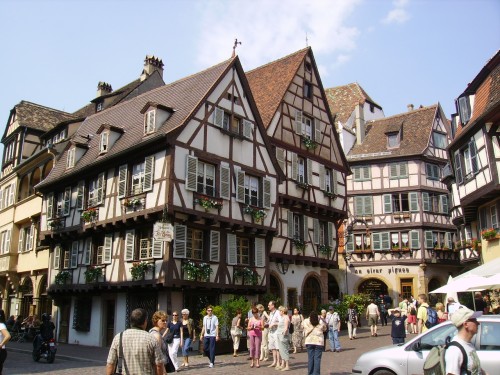
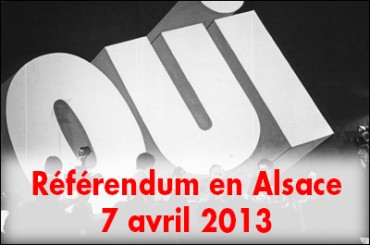
Dimanche 7 avril prochain, l'Alsace vote pour son avenir...
Entretien avec Jacques Cordonnier, Président d'Alsace d'abord :
Le 7 avril prochain, un référendum d’initiative locale aura lieu dans les deux départements alsaciens, dans la perspective de fusionner le Conseil régional d’Alsace et les Conseils généraux du Haut-Rhin et du Bas-Rhin. Jacques Cordonnier, le mouvement régionaliste Alsace d’Abord que vous présidez est fortement engagé en faveur du Oui dans le campagne référendaire. Pourquoi ?
Parce que le projet de fusion des hautes collectivités alsaciennes et de créer un Conseil unique d’Alsace a été imaginé et conçu dès 1989 par le mouvement Alsace d’Abord. Avec Robert Spieler - avec qui j’ai fondé le mouvement et qui en a été le président jusqu’en 2008 – nous avions eu très tôt la conviction que la prospérité et le rayonnement de l’Alsace, la sauvegarde de ses particularismes et son développement économique passeraient nécessairement par une réforme institutionnelle. Nous défendions l’idée, audacieuse à l’époque, qu’une telle réforme pouvait très bien n’être conduite qu’en Alsace et ne pas s’appliquer à toutes les régions de France, dès lors que les autres régions de France n’en voulaient peut-être pas encore.
Pourquoi l’Alsace devrait-elle avoir un statut différent des autres régions ?
L’Alsace a une tradition régionaliste très ancienne. Elle est certes la plus petite région française, mais c’est une région frontalière à forte identité, ballotée pendant des siècles entre des autorités tutélaires différentes. Notre identité se fonde sur notre double culture, française et alémanique, héritage d’une histoire mouvementée. Les Alsaciens demeurent très attachés à leurs spécificités. En dépit des multiples tentatives de l’État de franciser à tout prix cette région des marches de l’Est, l’Alsace a su conserver presque intact son droit local. La « chance » de l’Alsace fut qu’elle ne fut pas française quand le petit « Père Combes » imposa en 1905 la séparation de l’Eglise et de l’Etat. En 1919, la France victorieuse voulut remettre en cause ce statut. La révolte fut telle, et développa tant les mouvements autonomistes, que le Régime recula. Ce droit local, qui fait partie du patrimoine alsacien, est régulièrement l’objet de remises en cause par le pouvoir central. Qu’il s’agisse du livre foncier, du régime local d’assurance-maladie, de la réglementation spécifique de l’apprentissage, du statut concordataire des cultes, des instances prud’homales paritaires, de l’organisation mutualiste de l’épargne et de bien d’autres domaines, notre droit local a fait la preuve de sa supériorité sur le régime commun.
C’est ce statut particulier que nous entendons préserver et renforcer. Quand les Alsaciens parleront d’une seule voix, nous serons plus à même de demander d’autres transferts de compétences et de ressources de l’État vers la Région. De même, l’Alsace deviendra plus crédible vis-à-vis de nos puissants voisins du Bade-Wurtemberg ou de Bâle lorsqu’il s’agira de coopération transfrontalière.
Votre projet date de 1989 ; comment se fait-il qu’il ait fallu attendre si longtemps pour voir les choses enfin se décanter ?
Avec Robert Spieler et les autres élus de notre mouvement, nous nous battions inlassablement au sein du Conseil régional pour faire progresser l’idée du Conseil unique d’Alsace. Mais nous nous sommes toujours heurtés aux réflexes jacobins et « républicains » aussi vivaces chez les élus de droite que de gauche. Il faut dire que les grands partis nationaux, UMP, PS, mais aussi FN, ne favorisaient pas, chez leurs élus et leurs dirigeants, l’éclosion d’idées nouvelles qui auraient pu remettre en cause le centralisme et le jacobinisme « républicain » dont la plupart des régions s’accommodaient. Élection après élection, nous placions le projet de fusion au cœur des campagnes électorales, et c’est ainsi que chez les électeurs, au bout de vingt ans, l’idée a fait son chemin.
Cette fusion, et la création du Conseil d’Alsace, suffiront-elles à endiguer les effets de la crise qui touchent l’Alsace autant que le reste du pays ?
Le Conseil unique d’Alsace sera un formidable outil pour mettre progressivement en œuvre des décisions prises par les Alsaciens, pour les Alsaciens. Mais il faudra encore l’améliorer, car le projet tel qu’il est présenté aux électeurs est imparfait et incomplet. Les responsables UMP prétendent vouloir simplifier le mille-feuille administratif, mais ils ont concocté une usine à gaz peu compréhensible. On sent bien que le projet est le produit d’âpres marchandages entre Haut-Rhinois et Bas-Rhinois, entre Strasbourgeois et non-Strasbourgeois, entre citadins et ruraux. Médiocrité, quand tu nous tiens… Mais je ne boude pas mon plaisir ; mieux vaut une fusion incomplète que pas de fusion du tout. L’occasion qui se présente est historique. Si nous ratons cette fenêtre de tir, il n’y aura plus de possibilité de créer le Conseil d’Alsace avant cinquante ans ou plus.
Ne craignez-vous pas que ce référendum en Alsace soit une réplique du référendum local du 6 juillet 2003 en Corse, où le Non l’a emporté ?
Non, les deux référendums sont bien différents. Le référendum en Corse a été conçu et organisé par le centralisme parisien, ce qui a quelque peu énervé les Corses. De même que pour tous les référendums organisés dans les DOM-TOM par le passé. Le référendum du 7 avril 2013 en Alsace a été quant à lui, voulu, imaginé et préparé par les Alsaciens. C’est d’ailleurs une grande première. C’est la première fois dans l’histoire de France que les habitants d’une région vont être consultés, à leur demande, sur leur avenir institutionnel. Les Alsaciens pourront prendre leur destin en mains.
Vous avez donc toutes les raisons d’êtes satisfait. Ce référendum sera probablement une simple formalité ?
Non, rien n’est joué. Le Oui, pour l’emporter, doit satisfaire à deux conditions : faire plus de 50 % des suffrages exprimés, mais le Oui doit aussi atteindre 25 % des électeurs inscrits dans chaque département. Or comme chacun le sait, l’abstention n’a fait que progresser au cours des dernières décennies. En outre, il s’agira là d’une consultation uniquement régionale, ce qui veut dire que les grandes chaînes de télévision et la presse nationale n’en parleront pas, ou très peu. Sachant que les présidents UMP des Conseils généraux vont perdre leur siège de président, vous pensez bien qu’ils font campagne à reculons. Quant aux conseillers UMP et PS de base, généraux ou régionaux, ils craignent confusément de perdre leurs prébendes ; ils ne sont donc pas très actifs sur le terrain. Les élus du Front National, eux, font carrément campagne pour le Non, mettant en garde contre le morcellement de la République issue du siècle des Lumières… Ils aiment, ils adorent les valeurs de la République… Ils rejoignent ainsi dans le camp des jacobins, les militants du Front de gauche, du NPA, d’une partie du PS et les Libres penseurs francs-maçons qui n’ont jamais supporté la survie du Concordat en terre alsacienne. C‘est navrant, mais aujourd’hui le Front national est devenu le meilleur défenseur des idées de la Révolution française et des idées jacobines en Alsace. Navrant, vraiment navrant…
Mais le référendum ne peut-il pas permettre de donner la parole au peuple ?
Soyons lucides : Les Français n’ont pas la pratique ni l’habitude du référendum ou de la votation. De sorte que, lorsqu’ils sont enfin consultés, ils ne répondent pas à la question posée mais se livrent plutôt à un vote sanction, un vote de mauvaise humeur. Et en cette période de crise, les gens ont quelques raisons d’être de mauvaise humeur. Les responsables UMP seraient bien inspirés d’y penser et de détourner cette mauvaise humeur contre l’État socialiste. Mais ils n’osent pas, tant ils sont formatés pour s’incliner devant tout ce qui vient de Paris. Le mouvement régionaliste mène activement campagne, surtout dans le Haut-Rhin où l’on a agité depuis plus de trois ans le chiffon rouge de la domination strasbourgeoise. La domination strasbourgeoise ! Mais, que voulez-vous. Il est bien connu que les nains défendent leur pré carré. Ceci est vraiment profondément misérable et digne d’un nanisme cosmoplanétaire…
Ce sera sans doute difficile, mais j’ai la conviction que les Alsaciens choisiront de voter Oui. Oui à l’Alsace alsacienne, à la France française et à l’Europe européenne…
Un Parlement alsacien?
Quand il y a vingt-cinq ans nous demandions la création du Conseil d’Alsace, on nous traitait de fous. Il ne faut donc pas s’effrayer quand nous prédisons que dans quelques années, l’Alsace aura son Parlement. Dès aujourd’hui, nous devons demander des pouvoirs organiques et réglementaires afin d’obtenir sans délai la responsabilité du droit local, de sa sauvegarde et de sa modernisation. L’Alsace doit devenir maîtresse dans les domaines où son talent lui permettra de s’exprimer mieux, moins cher, plus efficacement que l’État. L’Alsace doit tirer le meilleur parti de sa situation dans l’espace rhénan et développer des relations étroites de partenariat avec ses voisins de la Suisse alémanique, du pays de Bade et du Sud-Palatinat.
Tout cela sera facilité avec l’installation du Conseil d’Alsace et la mise en œuvre d’un projet moderne de vraie décentralisation. La victoire du Oui le 7 avril prochain sera la victoire des Alsaciens et la chance de notre région.
Mais quand vous évoquez un Parlement alsacien, n’êtes-vous pas en pleine démarche indépendantiste ?
Ceci est une plaisanterie. L’Alsace est et restera française et européenne. Il n’est pas question pour nous de revendiquer une quelconque indépendance, idée ridicule, qui n’a aucun sens dans le cadre de la réflexion européenne et nationale qui est la nôtre. Il est consternant d’entendre des représentants de mouvements dits nationaux ou nationalistes reprendre les antiennes du jacobinisme révolutionnaire. Les meilleurs défenseurs de la Révolution française ne sont pas Mélenchon ni Buffet, mais Marine Le Pen et le Front national. Désespérant… Pardonnez-moi : Mais dire « merde » aux énarques parisien arrogants, ce n’est pas dire « merde » à la France.
Cet entretien a été publié dans Rivarol de la semaine dernière cliquez ici
Site d'Alsace d'abord cliquez là
00:05 Publié dans Actualité, Affaires européennes, Entretiens, Politique, Terres d'Europe, Terroirs et racines | Lien permanent | Commentaires (0) | Tags : alsace, europe, affaires européennes, régions d'europe, autonomie, jacques cordonnier, alsace d'abord |  |
|  del.icio.us |
del.icio.us |  |
|  Digg |
Digg | ![]() Facebook
Facebook



